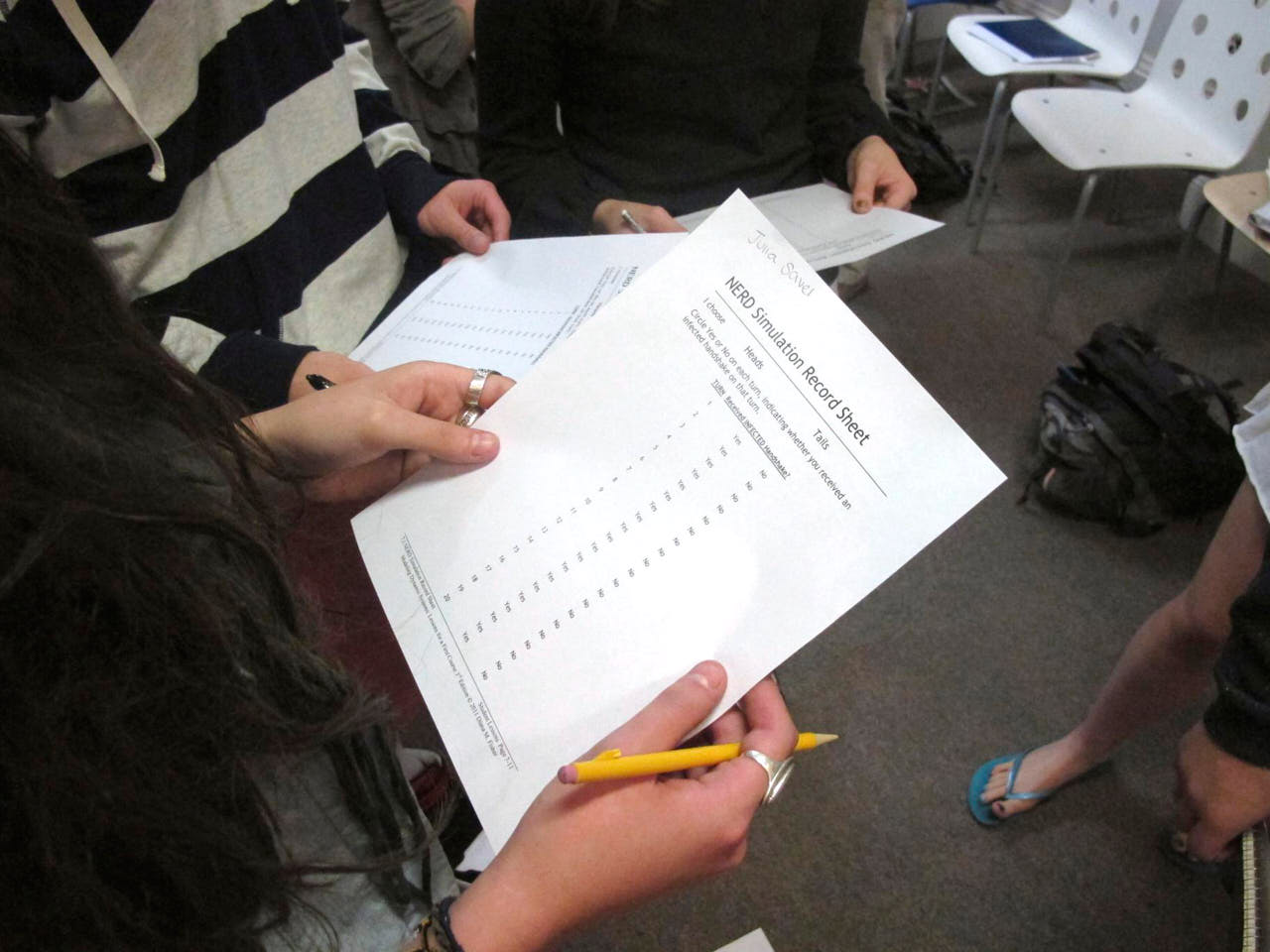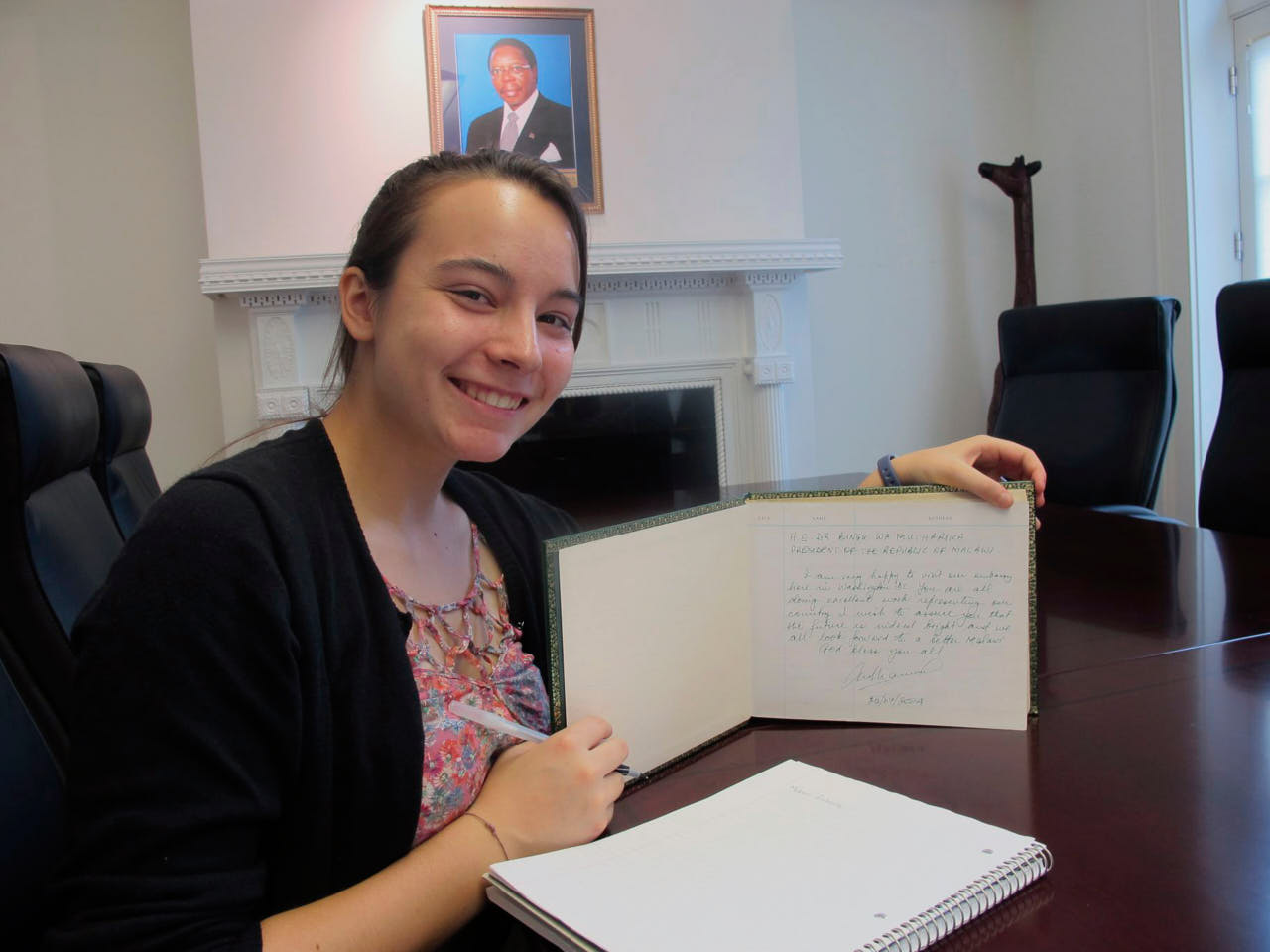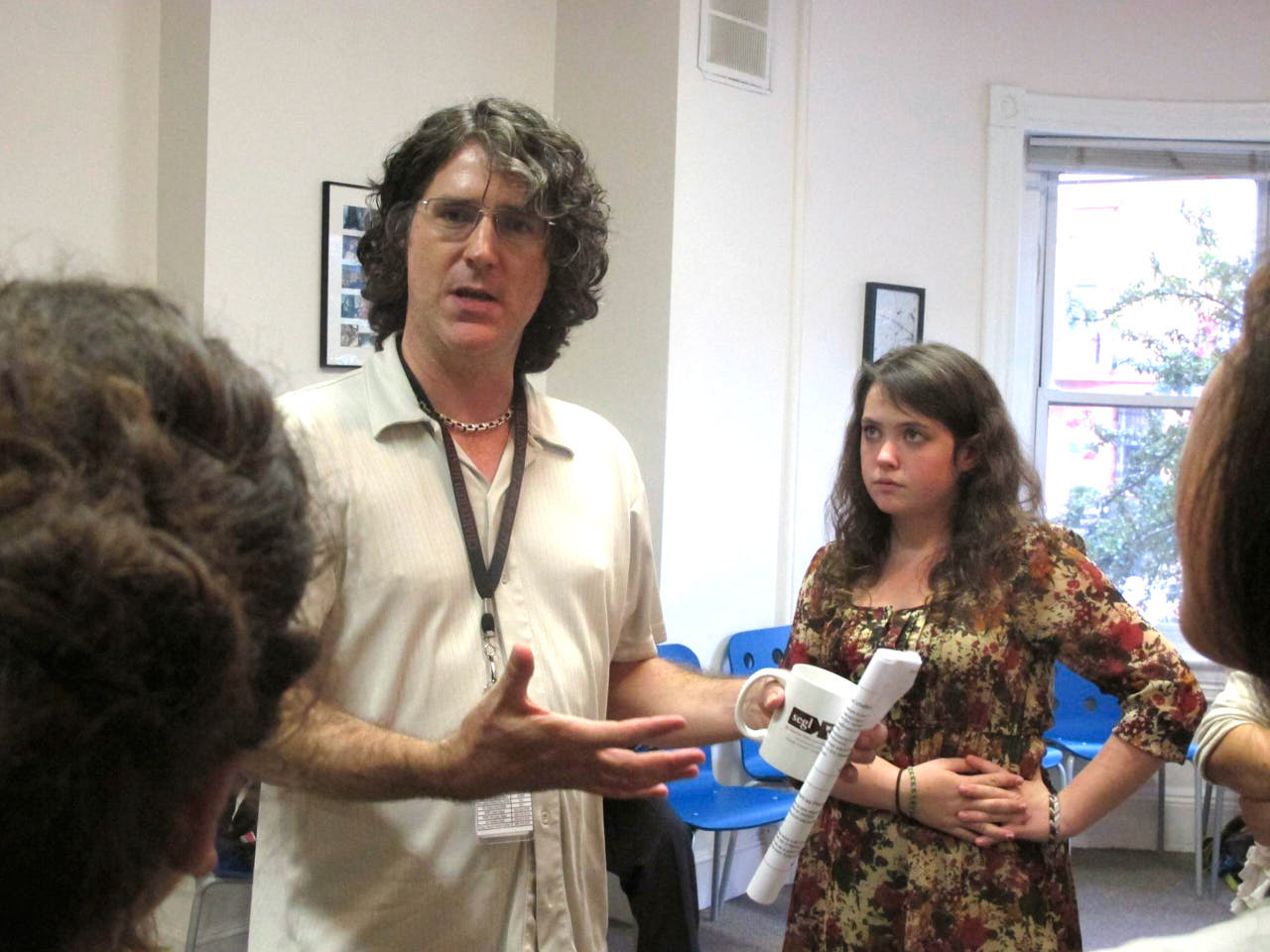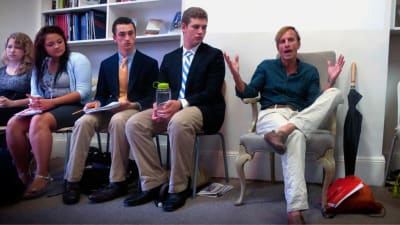Ambassador Mark Dybul, Former U.S. Global AIDS Coordinator, Visits SEGL for Master Class
Last week was a busy one at SEGL, as students tackled their biggest assignment yet: a concise, meticulously-researched policy memo on U.S. HIV/AIDS policy. Students presented and defended these policy memos before Ambassador Mark Dybul, the Bush Administration’s Global AIDS coordinator.
In preparation for this challenge, we spent Monday learning more about the HIV/AIDS epidemic. Alvin Fridie, SEGL’s science and math instructor, led students through an interactive simulation that showed how viruses spread.

 He
He also gave students a special task: for three days, set and follow a
medication schedule similar to the one many HIV/AIDS patients follow.
(Our medication took the form of Skittles and M&Ms!) Students then
heard a short lecture filled with the history and current global state
of the disease.
He
He also gave students a special task: for three days, set and follow a
medication schedule similar to the one many HIV/AIDS patients follow.
(Our medication took the form of Skittles and M&Ms!) Students then
heard a short lecture filled with the history and current global state
of the disease.

On Wednesday, we donned formal attire and (in small groups) visited five embassies that represent countries that PEPFAR (The President’s Emergency Plan for AIDS Relief) funds: Botswana (our next door neighbor in Dupont Circle), Ethiopia, Indonesia, Malawi, and Ukraine. (The Ukraine embassy is a special treat as it features the room where an agreement was signed making DC the nation’s capital.) Representatives from these embassies shared information that gave each country’s perspective and allowed students to ask many questions.

HIV/AIDS is an international issue, and also a local one. On Wednesday afternoon, Justin Goforth, the Director of Medical Adherence at Whitman Walker, DC’s largest HIV/AIDS clinic, visited SEGL to discuss the HIV/AIDS epidemic in DC. (“Epidemic” is the right word: as many as 6% of DC residents have HIV/AIDS.) Goforth has been HIV positive himself since the early 1990s, and was able to share both the personal and local policy side of the issue. His visit also raised an important policy question: why should we fund HIV/AIDS relief overseas when we have an enormous problem here at home? Students had different answers to that question.
On Thursday morning Ambassador Dybul joined us for one of the signature experiences of SEGL: the Master Class. One by one, the groups presented their memos, and Dybul responded by engaging them in a Socratic conversation that pushed each student’s intellectual limits. Is it ethical to fund Indonesia more because the U.S. has a strategic interest there? If Botswana is making great progress controlling their epidemic, why should we continue to fund that country? Which priorities are “must dos” and which are just “like to dos”? Why fund internationally when there are many domestic issues? The student responses were impressive and thoughtful. One of the best signs: many students wished they had more time with Dybul: the 15 minutes or so that he spent with each group “just flew by,” several said.
This week we are studying the situation in Libya, with former Chief State Department Speechwriter Lissa Muscatine as our guide. Stay tuned for more very soon.










